 News
News
Zucchini is a type of squash, belonging to the family Cucurbitaceae in the same family as melons and cucumbers. It is used as a vegetable and is usually cooked rather than a fruit of its own.
Zucchini has a long fruit shape, average length from 15-25cm and even up to 1m long. The outer skin is thin, dark green, light green orange or dark yellow depending on the variety.

The yellow female flowers are located below each zucchini, while the male flowers are located directly on the stem at the leaf axils and are smaller than the female flowers. When the flowers are still bud or just in bloom, they can be cooked to eat, while when the flowers are in bloom, they are more often used to garnish dishes. The zucchini plant is a favorite and easy to grow in temperate climates.
Zucchini is native to Mexico and the northern parts of South America a long time ago (about more than 7000 years ago). When the Americans came to Europe, zucchini began to be cultivated here. Specifically in the 19th century, zucchini was grown and grown in the Milan area, Italy.
It was not until the early 20th century, in the 1920s, that zucchini appeared in North America, possibly because Italians immigrated to the US and began to grow zucchini here, the first place was California. Currently, zucchini is widely grown in Europe.
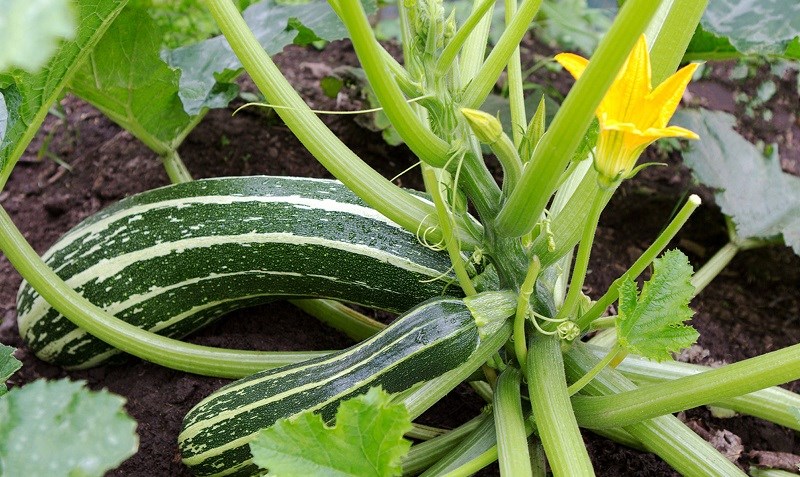
Zucchini is a fruit with a special flavor compared to Vietnamese squash and is a food containing a variety of vitamins, minerals and a number of other beneficial plant compounds. For example, on average, each 223g of zucchini contains the following nutrients:
Raw zucchini provides all of the above nutrients, but when cooked, the vitamin A and C content tends to decrease.
Zucchini contains a lot of antioxidants, all of which are beneficial to health, contributing to protecting the body from the damage of harmful free radicals.
For example, carotenoid antioxidants (such as beta-carotene, lutein and zeaxanthin) are abundant in zucchini. They all have a positive effect on the health of your eyes, skin and heart, and also help fight certain types of cancer (like prostate cancer).
In particular, it was found that the zucchini skin contains a lot of antioxidants, and the yellow squash skin often contains more antioxidants than the green squash.
In addition, zucchini is rich in vitamin K, the compound zeaxanthin and the mineral magnesium, all of which have the ability to build strong bones.

Thanks to its high content of water and fiber, zucchini is considered a beneficial food for the digestive system because it reduces the risk of constipation and some symptoms related to the intestines.
Specifically, zucchini contains a lot of water, making stools softer , easier to pass as well as reducing the risk of constipation. Besides, thanks to the content of insoluble fiber in zucchini helps food move through the intestines easily , while soluble fiber helps feed beneficial bacteria in the intestine, to create fatty acids. short chains (SCFAs) that nourish your intestinal cells .
What's more, SCFAs contribute to reducing inflammation and some symptoms of intestinal disorders such as irritable bowel syndrome (IBS), ulcerative colitis, and Crohn's disease.

The fiber in zucchini increases insulin sensitivity and lowers blood sugar, thereby reducing the risk of diabetes as well as being beneficial for those suffering from type 2 diabetes.
When zucchini is used every day or used in a low-carb diet, zucchini also contributes to a significant reduction in blood sugar and at the same time can reduce the use of insulin in patients with diabetes. people with type 2 diabetes.
The fiber in zucchini also helps stabilize blood sugar levels , preventing sugar spikes after meals.
According to the results of other animal studies, zucchini peel extract also has a similar effect thanks to the fiber and strong antioxidants present in the skin.

Zucchini contains carotenoids, potassium and fiber, all of which can lower blood pressure and cholesterol levels , contributing to a reduced risk of cardiovascular disease.
As research results show: people who eat a lot of fiber from zucchini have a lower risk of heart disease. In particular, a type of fiber called pectin has the ability to reduce total cholesterol and bad LDL cholesterol.
In addition, when analyzing from 67 studies, it was found that consuming at least 2 to 10 grams of soluble fiber per day, over the course of 1 to 2 months, would reduce total cholesterol by 1, on average. 7mg/dl and bad LDL cholesterol 2.2mg/dl.
Moreover, khaki also contributes to lower blood pressure by dilating blood vessels flexibly, thereby reducing the risk of heart disease and stroke. Similarly, dietary substances rich in carotenoids (including zucchini) are protective against heart disease .

Zucchini contains many substances that are beneficial for vision, such as vitamins A, C, lutein, zeaxanthin and manganese. In particular, vitamin C and beta-carotene are two important nutrients, directly affecting eye health .
In addition, antioxidants such as lutein and zeaxanthin also work to improve vision and reduce the risk of eye disease because these two compounds are stored in the retina. At the same time, lutein and zeaxanthin also contribute to reducing the risk of macular degeneration, which is common in the elderly, reducing the possibility of cataracts that cause poor vision.

The water and fiber content in zucchini is also effective in supporting weight loss. The fiber makes your body feel full and avoids cravings along with the low calorie content in zucchini.
Furthermore, eating vegetables that are non-starchy and have dark green or yellow skins (like zucchini) have been shown to be beneficial for weight loss .

Zucchini extracts may contribute to the death or growth of certain cancer cells, and have been studied in animals and test tubes. However, we still need more evidence before we can confirm that zucchini is completely beneficial in preventing cancer.

According to research results, zucchini seed extract can increase prostate health , which is a cause of difficulties for people with diabetes and sexual dysfunction in older men.
In addition, when tested on rats, it was found that zucchini peel extract could help keep thyroid hormone levels stable .
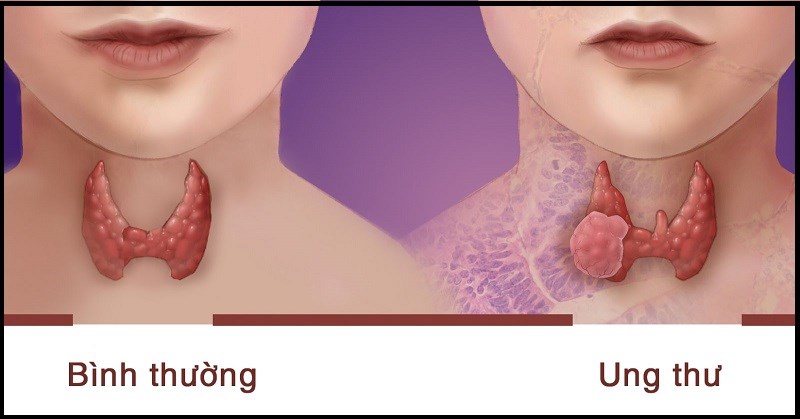
To get optimal nutrition from this fruit, you need to know how to choose and store zucchini properly. Let Dien May GREEN tell you the following:
You prefer to choose straight zucchini, when holding it in your hand, it feels firm and not soft. The shell is not scratched, bruised or insect penetrated. The stem of the zucchini is intact and fresh.
In addition, choose zucchini of moderate length and color that is not too green because these are usually standard fruits, neither too young nor too old.
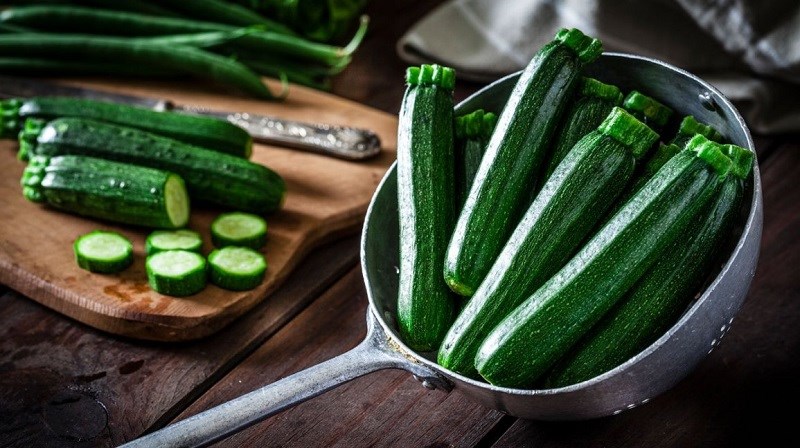
After being purchased, you should use it as soon as possible from 2-3 days to ensure its freshness and inherent nutrients. When you want to preserve, you just need to leave the fruit whole, then wrap each fruit in newspaper and place it in the vegetable compartment of the refrigerator to ensure freshness.
You can cut the stem of the zucchini, but not all of it, because it is easy to make the zucchini rot or shrivel.
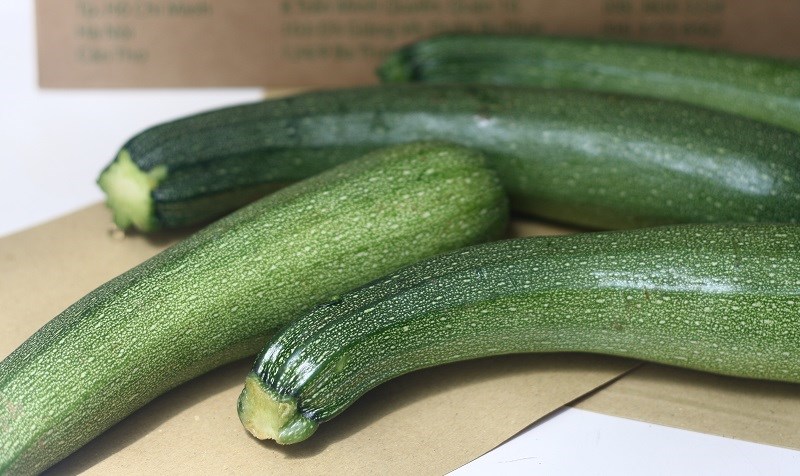
After knowing the nutritional composition and outstanding effects of zucchini, what are you waiting for, why don't you make many delicious dishes from this fruit for your family, such as:
Zucchini soup has a sweet taste, soft zucchini combined with the tough meat of fresh shrimp, is a soup that almost everyone likes because it is easy to eat and extremely nutritious.
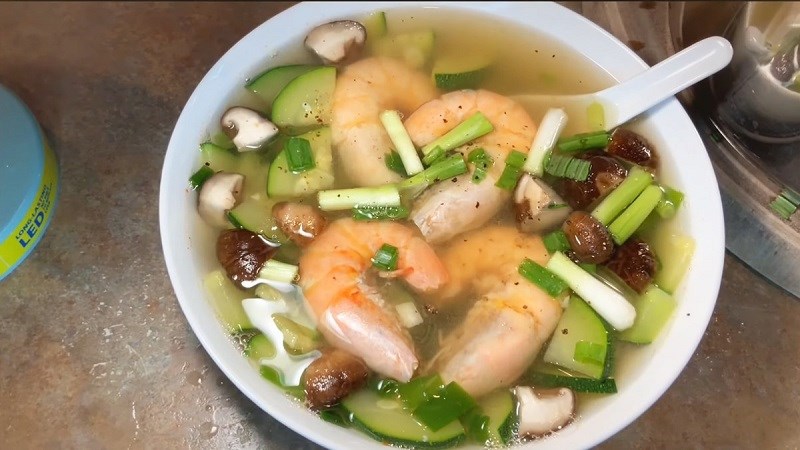
Instead of making soup, you can stir-fry zucchini with beef or stir-fry unevenly. The taste of fresh, soft squash goes great with white rice.
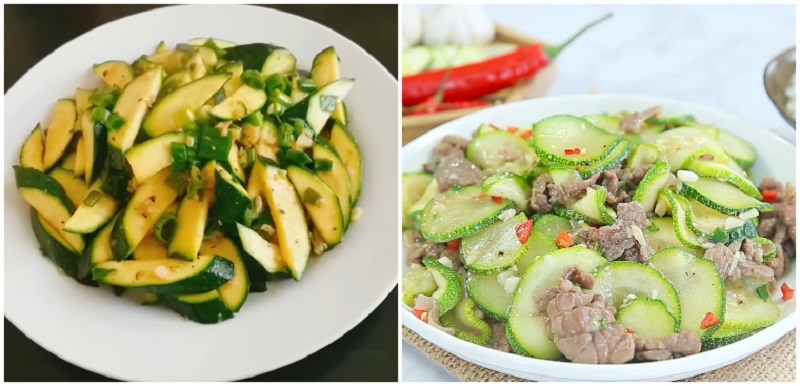
The vegetable stew Ratatouille uses zucchini ingredients along with bell peppers, eggplant, and onions to make the dish more colorful. The soft and sweet taste of zucchini combined with the aromatic crunch of bell peppers and the mild pungent taste of onions, is a vegetable stew worth trying!
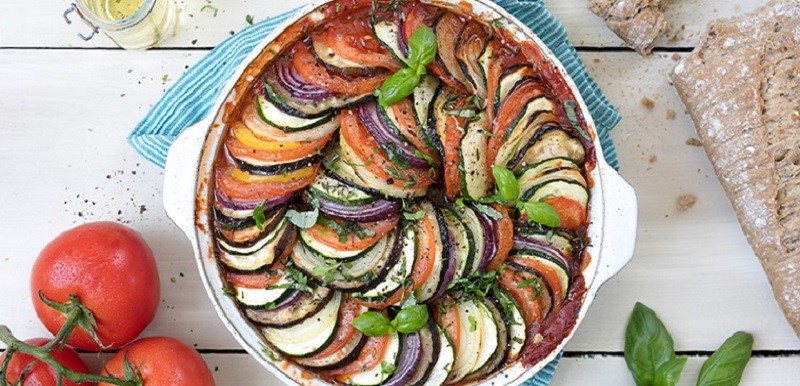
Zucchini can also make a strange steamed dish, you can stuff the plump minced meat inside, then steam it until it's cooked. When enjoying, you should dip it with a little soy sauce to add more flavor.

With just a few simple steps, you can make a delicious zucchini salad right away. The crunchy sweetness of zucchini mixed with the sweetness of American corn, along with the fatty leopard sauce, will surely capture your heart the first time you taste it.
